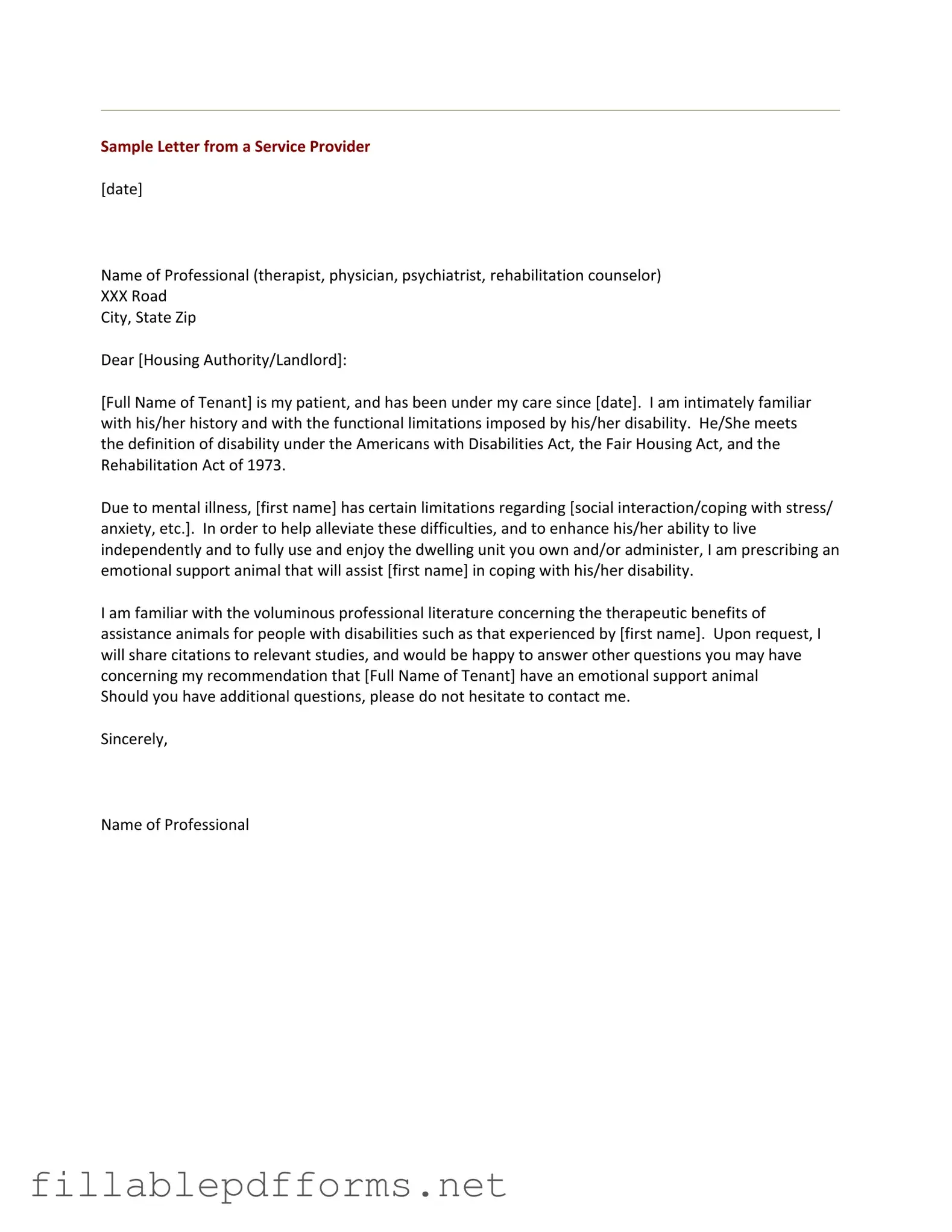Emotional Support Animal Letter PDF Template
An Emotional Support Animal Letter is a document provided by a licensed mental health professional that certifies an individual’s need for an emotional support animal. This letter serves as a way to ensure that people with emotional or psychological conditions can have their animal companions with them in various settings, including housing and travel. By recognizing the therapeutic benefits of these animals, the letter helps to facilitate a better quality of life for those in need.
Launch Editor Here

Emotional Support Animal Letter PDF Template
Launch Editor Here

Launch Editor Here
or
▼ Emotional Support Animal Letter PDF
Almost there — finish the form
Complete Emotional Support Animal Letter online fast — no printing, no scanning.